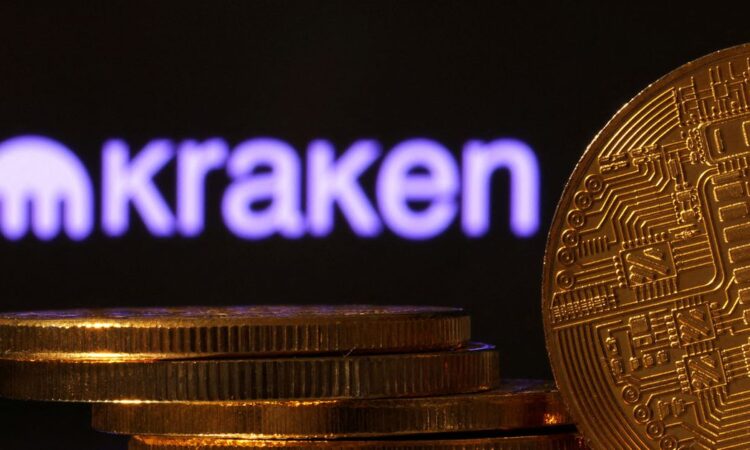
Feb 9 (Reuters) – (This Feb. 9 story has been refiled to add ‘U.S.’ in the first sentence to reflect the closure of the U.S. service only)
Crypto exchange Kraken agreed to shut down its U.S. cryptocurrency staking service and pay $30 million in penalties to settle U.S. Securities and Exchange Commission charges that it failed to register the program, the agency said on Thursday, in a move that could cause headaches for platforms with similar offerings.
The settlement marks the SEC’s first crackdown on staking, a common service offered at both centralized and decentralized crypto exchanges, including most of the major exchanges in the United States such as Coinbase (COIN.O) and Binance US.
In a video message posted to Twitter on Thursday, SEC chair Gary Gensler said that most staking providers fail to provide customers proper disclosures such as how a company is protecting a user’s staked assets. Those providers should register their staking services with the SEC, Gensler added.
Latest Updates
View 2 more stories
“When a company or platform offers you these kinds of returns, whether they call their services ‘lending,’ ‘earn,’ ‘rewards,’ ‘APY,’ or ‘staking’ – that relationship should come with the protections of the federal securities laws,” Gensler said.
Owners of crypto assets that use a “proof-of-stake” blockchain can stake some of their assets to potentially take part in the process of validating transactions. In exchange for their work, validators are often rewarded with newly created crypto assets.
Kraken offers its customers the ability to “stake” certain crypto tokens in order to earn rewards. Its website advertises that users can earn up to 20% in annual yield if they pledge to lock up their assets for a certain period of time.
The San Francisco-based platform did not admit or deny the allegations in the SEC’s complaint.
In a statement, Kraken said its agreement to end its on-chain staking services would affect only U.S. clients, and that most assets enrolled in its program by U.S. users would be automatically “unstaked” starting on Thursday.
In a series of tweets on Wednesday, Coinbase CEO Brian Armstrong said a ban on staking for U.S. retail customers would be “a terrible path for the U.S.” Coinbase also offers a staking service to its U.S. customers.
“We need to make sure that new technologies are encouraged to grow in the US, and not stifled by lack of clear rules,” Armstrong said.
Shares of Coinbase were down more than 14% on Thursday.
Kraken in November agreed to pay $362,000 to the U.S. Treasury Department’s Office of Foreign Assets Control to settle civil liability related to apparent violations of sanctions on Iran, and to invest an additional $100,000 in certain sanctions compliance controls.
The company’s incoming CEO told Reuters in September that the exchange had no plans to register with the SEC as a market intermediary, or to delist crypto tokens that the regulator has labeled as securities.
The settlement comes a year after a subsidiary of crypto company BlockFi Inc agreed to pay $100 million to the SEC and 32 states to settle charges in connection with a retail crypto lending product the company offered to nearly 600,000 investors.
As part of the settlement, BlockFi had planned to offer an alternative product expected to be the first crypto interest-bearing security registered with the SEC, but the New Jersey company filed for bankruptcy in November without launching the product.
Reporting by Hannah Lang in Washington, Editing by Franklin Paul and Will Dunham
Our Standards: The Thomson Reuters Trust Principles.






